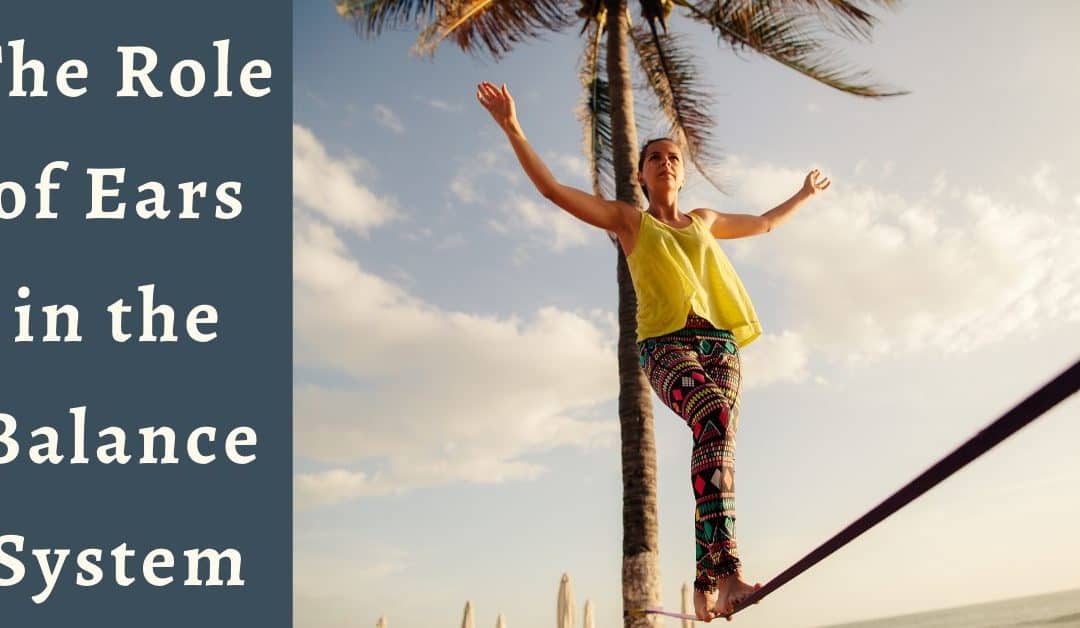When doctors say that all the systems of our body are connected this is no understatement. Our ears are a complex system connected to so many parts of your body and it’s functions. Remember spinning around when you were a child to get dizzy? This dizziness was caused by the inner ear system. Not only are the ears connected to your throat nose and eyes, but your ears play a major role in the complex system that keeps us from falling over, commonly referred to as our balance. Together with the eyes as a visual input, the complex system of our inner ears and the muscles and joints information is sent to the brain, reporting the position of the head and keep you standing upright as you navigate your day. If something goes wrong with the elaborate, fragile system of the inner ear then staying balanced becomes much more of a challenge. This is why it is so important to pay attention and maintain hearing health. It turns out our ears are a major factor in our independence as we navigate an uneven world daily.
Where is the inner ear and what does it do?
The inner ear communicates the position of the head to the part of the brain called the cerebellum that controls the body’s movement. The inner ear located just under the brain contains three small tubes lined with tiny hairs called cilia. These tubes connect to make up the vestibular system, which is used primarily for maintaining our balance. Each hair of the cilia connects to a nerve cell that carries signals to the cerebellum when the head moves. The spinning you did as a child or perhaps even today makes you dizzy because the fluid in your ears also spins along with your body. When you finally stop it takes a moment for the fluid in the inner ear to stop spinning. Any direction that we move our head the cilia are alerted by the movement of the fluid in our inner ears and reports it to the brain. Using this information from the vestibular system, the brain sends information to your joints and muscles to compensated and maintain balance. Sound complicated? When your inner ear system is working at it’s best you might not even realize but if something is wrong there is no way to ignore the problem.
Balance Disorders
A balance disorder is a condition that will make you feel dizzy or unsteady, as if you can’t stop moving, spinning, or floating, even when you are standing still or lying down. Balance disorders mainly occur when something goes wrong in the inner ear or the brain and can be caused by viral or bacterial infections in the ear, injury or impact to the head or blood pressure that is too low or too high. Damage to the inner ear and the balance problems that can ensue can also be caused by ototoxic medications that have a toxic effect on the ear or its nerve supply. To practice hearing health it is important to check with your doctor before taking any medication. It is common for people to experience more problems with their balance as they age. Sometimes a balance disorder can be connected to a skeletal or arthritis disorder but very often a problem with your balance with seem to appear from no cause at all. It is up to a physician and often an audiologist to diagnose your condition.
How Hearing Aids can Aid in Balance
Because balance issues are often connected to your hearing, hearing aids can often help in keeping you upright and stable. Though it’s not a direct cure for issues in the inner ear hearing aids can improve the quality and amount of sound reaching the eardrum. These devices can give the brain a better concept of a person’s surroundings. If people can identify more auditory landmarks around them, then the brain has a better map to navigate a person’s surroundings. If you have been suffering from balance issue don’t delay in seeking treatment. The longer you wait the worse your conditions can progress. Make an appointment today!

